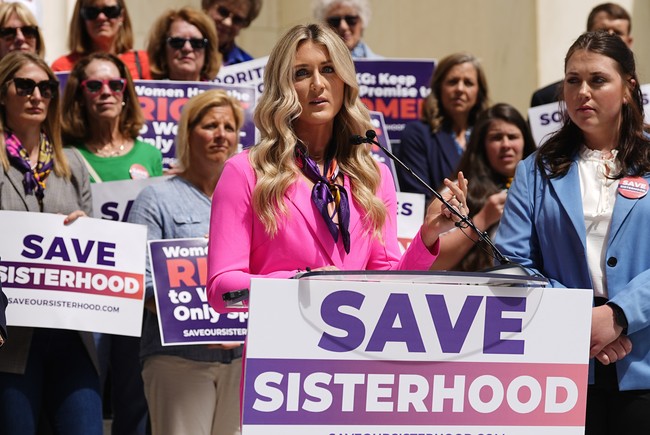
Benjamin Mayo, writing at 9to5Mac:
Apple has appealed parts of the Digital Markets Act law citing user privacy concerns. Specifically, Apple is contesting the interoperability requirements that say data like notification content and WiFi networks should be made available to third-parties.
Apple says the DMA as written allows others to “access personal information that even Apple doesn’t see”. This is because features like notification rendering and WiFi network data are currently handled on-device and stored in an encrypted fashion, so Apple cannot see that stuff. However, the DMA does not necessarily require third-party agents who would be able to access this same data to commit to the same standards of privacy and security.
Here’s Apple’s latest statement on the matter, in full:
At Apple, we design our technology to work seamlessly together, so it can deliver the unique experience our users love and expect from our products. The EU’s interoperability requirements threaten that foundation, while creating a process that is unreasonable, costly, and stifles innovation. These requirements will also hand data-hungry companies sensitive information, which poses massive privacy and security risks to our EU users. Companies have already requested our users’ most sensitive data — from the content of their notifications, to a full history of every stored WiFi network on their device — giving them the ability to access personal information that even Apple doesn’t see. In the end, these deeply flawed rules that only target Apple — and no other company — will severely limit our ability to deliver innovative products and features to Europe, leading to an inferior user experience for our European customers. We are appealing these decisions on their behalf, and in order to preserve the high-quality experience our European customers expect.
Apple’s full statement is worth reading closely. Specifically, this sentence jumped out to me: “In the end, these deeply flawed rules that only target Apple — and no other company — will severely limit our ability to deliver innovative products and features to Europe, leading to an inferior user experience for our European customers.” The Wall Journal’s story on the appeal, for example, didn’t include that portion of Apple’s statement. But that’s the part that explains what’s going to happen if the EU upholds these “interoperability” requirements, which are intended to require Apple to give away its own intellectual property as though Apple were a public utility. To cite just one example, the Commission’s March ruling requires Apple to make AirDrop available to third-party devices, as though AirDrop is an open standard. (It also requires Apple to allow AirDrop to be replaced on iOS devices, like an interchangeable component, with third-party file sharing software.)
When you think about it, this is nothing like the EU’s recent-ish mandate that most electronic devices must support USB-C ports for charging. I still think that law was unnecessary — the market forces had worked, and the whole world had either already moved (like iPads did starting in 2018) or was on the cusp of moving to USB-C (like iPhones). But at least requiring the inclusion of USB-C for charging is actual open interoperability. USB comes from a legitimate industry consortium. Same thing with the Chinese government seemingly forcing Apple’s hand to adopt RCS in order to get the necessary certifications for 5G cellular networking in China — RCS is an industry standard protocol. Mandating the inclusion of a standardized port or standardized protocol is the sort of thing government regulatory bodies do. That’s very different from requiring Apple to open up Lightning or iMessage for other companies to use as though they’re open standards.
The EC’s March mandate basically says that third-party devices must be permitted to do everything Apple’s own devices do when it comes to communicating or interoperating with iPhones and iPads, even if that requires allowing those third-party companies to install and run system-level background processes with broad privileges on iOS. In fact, as Mayo alludes to above, in order to have the same capabilities as Apple’s own devices do, third-party system software extensions might need broader privileges.
I’ve long seen that there are two ways Apple can comply with this mandate, if the EU court declines Apple’s appeal. The first is what most people are thinking, and surely what the European Commission’s bureaucrats are thinking: that Apple will somehow make all third-party devices as capable as Apple’s own when it comes to pairing with and communicating with iPhones and iPads. (And that when Apple is set to unveil new devices, they’ll share the details with third parties in advance so they can do the same things.) The second, though, is that Apple will limit its own devices in the EU and only in the EU to the same features available to third-party devices through open standards like Bluetooth. New features and entire devices will either come late, or never, to the EU. We’re already seeing that with iPhone Mirroring — perhaps the single best feature Apple announced (and actually shipped) last year. I use iPhone Mirroring every day while I’m working. We’re one week out from WWDC 2025 and iPhone Mirroring still isn’t available in the EU. I think it’s very clear that under the EC’s current DMA “interoperability” mandate, Apple would be required to somehow make it work with third-party devices and PCs. If AirDrop were brand new, users in the EU wouldn’t get that either, I suspect. And if this mandate holds up, EU users might lose AirDrop. The same is true of entire devices like AirPods and Apple Watch.
Apple’s statement doesn’t say that complying with these breathtaking demands will adversely affect their customers around the world. They’re saying it will lead “to an inferior user experience for our European customers”. Mandating that the public has to be allowed to use the same doorways as a (say) hotel’s own staff doesn’t mean those existing doors will be opened to everyone. It could lead to those doors being closed to everyone. And all of a sudden no one staying at the hotel is getting food from the kitchen.
NOT SURE ABOUT YOU, but it looks to me like a whole lot of the commentariat are melting down about David Seymour becoming Deputy Prime Minister — despite the role being as much use as a glass eye at a keyhole.
The most absurd critiques, and here I'm looking at Wee Willie Jackson and Mihinarangi Forbes, goes at him for being "a libertarian." Which poses some kind of a dangerous threat, apparently, despite libertarians famously not caring what goes on behind your closed doors.
You can just watch Jackson, especially, foaming at the mouth over the weekend:
"David Seymour is an extremist ...
"his far right libertarian 'solutions' ...
"his Free Market Libertarian extremism ...
"David is a dangerous libertarian extremist ...
"David Seymour is a very dangerous libertarian extremist."
But is Seymour really a libertarian?
And if so, how would that be a threat to anyone?
It's pretty clear his critics have no idea, since they can't articulate any.
After all, what is it to be a libertarian?
The most topical answer comes from Javier Milei:
What's a libertarian?A libertarian is someone who believes in unrestricted respect for the life projects of others. It's damned hard to see how that's a threat to anyone.
Someone who believes in unrestricted respect for the life projects of others.
Unless, that is, your life project is like Willie's, which is to place your snout permanently into a race-based trough.
 |
| Click through for video ... |
Interviewer: What is it to be libertarian? ... Why do you define yourself as a libertarian?
Milei: I define it for you by default [by opposites].
What would someone on the right be like? Someone who doesn't mind who you trade with -- is a liberal economically speaking -- but it bothers him who you get into bed with. Who is a "cultural conservative."
Int.: Repeat that?
Milei: A right-wing person is someone who is economically liberal, someone who doesn't care who you trade with, but cares who you sleep with. Who is a "cultural conservative."
Int.: Okay. I get it.
Milei: On the other hand, a left-wing person is liberal culturally --- they don't care who you get into bed with -- but is interventionist economically; they don't let you trade with whomever you want.
So, what would a libertarian be?
Someone who believes in unrestricted respect for the life project of others. [W]ho believes consenting adults can get into bed with whoever you want -- with every one you want.
Int.: Is that how a libertarian thinks?
Milei: Exactomento.
And obviously you can trade with whoever you want.
Int.: You are libertarian then?
Milei: Exactomento.
 |
| [Pic by LaNewzViewz] |
As we slowly start to come to terms with the incredible conceptual difficulty of even imagining what it would mean to restructure the USG, some of the deepest issues are at the level of finance, economics, and even mere accounting.
The United States needs to be restructured in many senses—most of all, in a financial sense. “Restructuring,” in a financial sense, is a euphemism for bankruptcy. A national restructuring is a national bankruptcy.
Anyone can see that there is something deeply wrong with the amount of money that the United States chronically borrows. Anyone can connect this obviously unhealthy state of chronic national deficit with the general withering of our productive industry.
This excessive borrowing is not limited to the state—it exists across the private sector. It reveals a line between “public” and “private” nowhere near so clear as it should be. And wherever it exists, it seems to be funding consumption, not genuine investment. Why is our nominal capital base expanding rapidly, when our physical capital base is visibly falling apart? Whatever this is, it has been happening for at least fifty years.
The usual Republican green-eyeshade process of “cutting the deficit,” maybe by “eliminating waste, fraud and abuse,” simply does not cut it here. Even just at the economic level, America needs a level of structural change in economic praxis and theory which can only be compared to the fall of Marxist-Leninist central planning.
Think we have real capitalism? The essence of capitalism is capital; the essence of capital is interest. In real capitalism, free-market capitalism, interest rates—at both short and long terms—are set by free and transparent markets. TLDR: we’re not as different from the USSR as we thought.
What is this strange financial system we have? Let’s call it American boomer finance. In the process of winding it down, we will have to understand it. Any well-ordered bankruptcy has this dual nature. Analysis is the termination of mystery.
A quick overview of national bankruptcy
“National bankruptcy” sounds like some kind of spontaneous catastrophe in which the ATMs stop working, Greenwich Village reverts to cannibalism, etc, etc.
It is important to clarify that this cannot happen. The US Government cannot “go bankrupt,” like a company running out of money, for a simple reason—unlike a company running out of money, its liabilities are denominated in its own equity.
The Federal Reserve System (contrary to certain conspiracy theories) is part of the government. The government cannot run out of dollars (Federal Reserve Notes), any more than Google can run out of GOOG shares. Paper is not gold. Maybe we should be on the gold standard. I agree! Accounting is about what is, not about what should be.
The division between Treasury and the Fed is administrative and externally irrelevant. It does not appear in any meaningful sovereign accounting. Eliminating this falsity is the first step in any reasonable national bankruptcy process. Stop playing pretend.
A proper “bankruptcy” is just a restructuring—a rewriting of accounting systems. For instance, United Airlines was in bankruptcy for many years. The planes did not stop flying. The company was operating—just in a kind of financial limbo.
When America declares bankruptcy, the ATMs do not stop working. The number in your bank account or stock portfolio does not change. Stocks and bonds have been converted to cash. Even home equity has been cashed out—your old mortgage is your new rent. Incentives may change over time, but the numbers start out about the same. Maybe some people get a little richer.
Under this surface, everything has been flattened. The government owns all financial assets. All private savings are in cash. To complete the process, the assets (companies, real estate, etc) will be auctioned to the public. You get a discount if you buy your own house back—and asset prices will generally be lower, so you’d profit anyway.
These procedures allow the new regime to reset all financial asset prices without any incidental penalty on anyone. Your personal net worth in the old regime is measured from all its complex components. Your net worth in the new regime is just a number. All your bets are cashed out, and the number is what it was. If it changes, it changes upward, and not by much. So existing patterns of economic activity remain functional.
Principles of sovereign accounting
New sovereign accounting starts with three rules:
First, the government owns the country. The state is a firm. The nation is its property. The mission of every firm is to cultivate its property. The mission of the state is to cultivate the nation, by governing it well. Like what part do you disagree with lol.
Second, fiat currency is government equity. Dollars are shares in the US government. They are pieces of paper which have equal value and convey no other rights. Ergo, they are (at least one class of) shares in the government.
Third, securities are formal. Markets are stable when there are no informal securities. Formalization produces stable interest rates set by supply and demand at every term.
An informal security is a security that may or may not exist. One example is a promise that no one writes down, or is vague and can be interpreted in different ways. Such a promise may or may not be a contract guaranteed by law, that is, a security.
“Informal securities” may sound like a financial category that exists in the Third World. It does. It also exists in the First World. In fact (as we’ll see), if all informal securities were suddenly cancelled, First World finance would instantly implode.
This does not mean that informal securities are vitamins. They are not vitamins. They are more like addictive drugs. Getting off these drugs will be dangerous and difficult.
Winding down boomer finance
The central reform at the heart of any sovereign-accounting reform is simply to fix the number of dollars. This is far more difficult and dangerous than you might imagine.
Fixing the dollar supply is part of eliminating informal securities—now, there are no more dollars that might or might not exist. But don’t just pull the trigger on that, ok? Winding down boomer finance is like shutting down a nuclear reactor, except worse.


BOULDER, CO — The controversy surrounding a horrific attack over the weekend continued today, as a Colorado court ruled that Jewish victims must bake a cake for the terrorist who lit them on fire.

